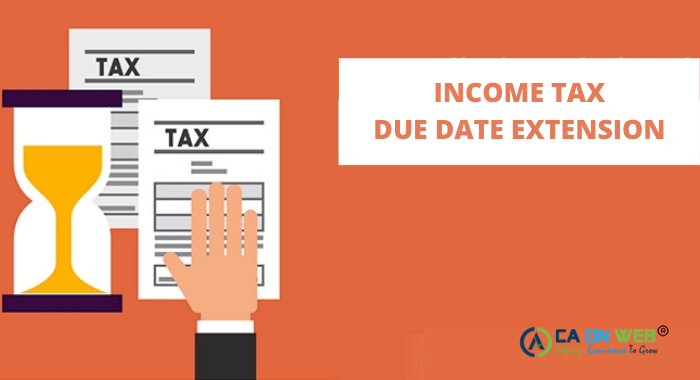There are many questions related to check income tax refund status and types of income tax return.
My income tax return has not been submitted in the last two years. Can I submit it now?
Those who skipped submitting returns in the past sometimes cite ignorance as one of their excuses for not doing so. Some claim that the discrepancy in their ITRs was caused by them being on sabbatical and not working. Or they simply forgot to file because they were too busy.
The tax department may have sent a notification to some of these defaulters. Some are hesitant to make changes because they believe doing so will draw attention to themselves and result in a warning. In fact, if you do not make corrections, your chances of receiving a notification are increased “says Caonweb Mr. Sanket Agarwal.
The tax division doesn’t want to bother a taxpayer who is ready to cooperate. The CBDT recently provided taxpayers with an opportunity to complete outstanding ITR V verifications for the preceding 6 assessment years. Even if you have never submitted a tax return or have failed to file in the last several years, you shouldn’t be concerned. Make this year a new beginning.
Who should file an income tax return?
Individuals or businesses who earn taxable income above the minimum threshold set by the government need to file an income tax return. Furthermore, individuals who receive income from investments, rental income, or foreign income, are also required to file their tax returns.
How can I know if an ITR was submitted successfully?
There may be delays if you file on the final day since the servers are busy. Hence, confirm that the tax agency has provided you with an acknowledgment number. This acknowledgment was sent to the email address you provided.
Watch for an email with the subject “Confirmation on Filing of IT Return” that comes from DONOTREPLY@incometaxindiaefiling.gov.in. The ITR V, which contains the acknowledgment number, is typically attached. If you don’t receive this email, your return might not have been correctly submitted, in which case you might need to resubmit. Your ITR V must still be verified. After 120 days of submitting the return, you can electronically verify or mail the signed ITR V to the processing center.
Do I need to provide any supporting documentation with my ITR?
Yes, you need to submit certain documents along with your online income tax return. The documents you need to submit mainly depend on the type of income you have earned during the financial year and the deductions you have claimed.
The following are some typical papers you could be required to submit to ITR:
- Form 16 – This is provided by your employer if you are a salaried employee. It shows your salary, TDS deducted, and other details.
- Form 26AS – This is a tax credit statement that shows the taxes you have paid during the financial year. It can be downloaded from the income tax e-filing portal.
- Bank statements – You may need to submit bank statements to show the interest earned on your savings or fixed deposits.
- Proof of investments – If you have claimed deductions under Section 80C, you need to submit proof of investments such as PPF receipts, LIC premium receipts, etc.
- Capital gains statement – If you have sold any assets such as property or shares during the financial year, you need to submit a capital gains statement.
- Rent receipts – If you are claiming HRA (House Rent Allowance) exemption, you need to submit rent receipts.
It is important to note that you should keep all the documents related to your income and expenses for a minimum of six years. These documents may be required by the tax authorities for any future reference.

What are the numerous standard errors made while filing income-tax returns?
There are several common errors made by taxpayers while filing their income-tax returns:
- Incorrect personal information: This includes incorrect name, PAN details, address, and email address. It is important to double-check such information as it can lead to complications in the processing of tax returns.
- Incorrect TDS details: It is common for taxpayers to make errors while entering TDS details such as tax deducted at source, TAN details, and the name of the deductor. This can lead to issues while applying for refunds.
- Incorrect calculation of income: Errors in computing income can lead to incorrect tax liability declaration. Taxpayers should ensure that all sources of income are declared correctly and all deductions are claimed.
- Failure to declare all sources of income: It is important to declare all sources of income, including interest income, capital gains, and rental income. Charges and interest costs may result from failure to comply.
- The incorrect claim of deductions: Taxpayers can claim deductions under various sections such as Section 80C, Section 80D, and Section 80G. However, some taxpayers make errors while claiming such deductions, which can lead to incorrect tax liability calculation.
- Incorrect bank account details: Incorrect bank account details, including bank name, branch name, and account number, can also lead to complications in the processing of tax returns.
- Late filing of tax returns: Failure to file tax returns on time can lead to penalties and interest charges.
- Ignoring tax notices: Taxpayers sometimes ignore notices issued by the tax department. This can lead to further complications and legal issues if not addressed in a timely manner.
What are the consequences if you don’t submit the ITR on time?
If you do not file your income tax return, you may face penalties and interest charges eventually. The income tax department may also send you a notice asking for the reasons for non-filing or non-payment of taxes. Filing an income tax return is an essential part of financial planning and ensures that you comply with the Income Tax Act. By understanding these frequently asked questions, you will be better equipped to manage your finances and avoid any tax-related issues.
How is income tax calculated?
Based on a person’s taxable income, income tax is estimated. The taxable income is determined by subtracting all allowable deductions from an individual’s gross income.
Calculating taxable income:
- Start by calculating gross income. Gross income includes all income earned from all sources including:
- Wages and salaries
- Tips and bonuses
- Interest and dividends
- Rental income
- Business income
- Capital gains
- Subtract all allowable deductions to determine adjusted gross income (AGI). Allowable deductions include:
- Standard deduction or itemized deductions
- Qualified contributions to retirement accounts
- Health insurance premiums
- Student loan interest
- Alimony payments
- Certain business expenses
- Calculate taxable income by subtracting the personal exemption and any additional exemptions from AGI. The personal exemption is a set amount that is subtracted from AGI for each taxpayer and dependent claimed.
- Determine the tax rate based on taxable income. Tax rates increase as taxable income increases. Tax brackets can change each year and are determined by the government.
- Calculate the total tax owed by multiplying the taxable income by the applicable tax rate. This will give you the total amount of federal income tax owed.
- Subtract any applicable tax credits from federal income tax owed. Tax credits are dollar-for-dollar reductions in the amount of tax owed and can be applied to various expenses such as childcare costs, education expenses, or energy-efficient home improvements.
- The final amount is the individual’s net income tax liability, which must be paid to the government on an annual basis by April 15th.
Can I file a revised income tax return?
Yes, you can file a revised income tax return if you have made any mistakes in the original return or need to make any changes. You can file a revised tax return within a stipulated timeframe after the original return is filed.
What are the types of the income tax return in detail?
ITR stands for Income Tax Return, which is a document that individuals and businesses in India are required to file with the Income Tax Department every year. There are different types of ITR forms that correspond to different sources of income and other circumstances.
Here are the different types of ITR forms and the situations for which they are applicable:
- ITR-1 (SAHAJ): This form is for individuals who have a salary or pension income, income from one house property, and income from other sources such as interest or dividends. It is not applicable to individuals who have capital gains or business income.
- ITR-2: This form is for people who have incomes from capital gains, more than one home property, or foreign assets, as well as HUFs. It is also applicable for NRIs who have income in India.
- ITR-3: This form is for individuals and HUFs who are self-employed professionals or have a business. It is not applicable to individuals who have income from capital gains.
- ITR-4 (SUGAM): Individuals and HUFs with probable income from a business or profession should use this form. It is applicable for small businesses or professionals who have a turnover of up to Rs.2 crores.
- ITR-5: This form is for partnerships, LLPs, and the Association of Persons (AOPs). It is not applicable to companies.
- ITR-6: This form is for companies other than those that claim an exemption under Section 11 of the Income Tax Act.
- ITR-7: This form is for entities such as trusts, political parties, religious institutions, or colleges that are eligible for exemption under Section 139(4A), 139(4B), 139(4C), and 139(4D) of the Income Tax Act.
It is important to file the correct ITR form based on your source of income and other circumstances to avoid any penalties or legal issues.
Related Blog: How to Calculate Your Income Tax Liability
What is the Procedure to file types of income tax return?
The procedure to file types of income tax return is as follows:
- Registration: For filing ITR, an individual must first register on the e-filing website of the Income Tax Department. Once logged in, under the ‘My Account’ tab, one can click on the ‘Register Yourself’ button and obtain a user ID and password.
- Collecting documents: One must collect all relevant documents like Form 16, salary slip, bank statement, TDS certificate, and investment details.
- Choosing the right form: There are different ITR forms for different types of taxpayers. Choose the appropriate ITR form based on the sources of income.
- Filing ITR: One can file ITR either online or offline. For online income tax return filing, log in to the e-filing website and select the ‘e-file’ option. Fill in the details in the ITR form and upload supporting documents, if any. Submit the form and download the acknowledgment. For offline filing, one can download the ITR form from the e-filing website or obtain it from the Income Tax Department. Fill in the details, attach supporting documents, and submit it to the Income Tax office. A stamped acknowledgment will be given.
- Verification: The final step is verifying the ITR. A taxpayer can verify the ITR electronically through Aadhaar OTP, Net Banking, or EVC. Alternatively, one can download the ITR-V from the e-filing website, sign it, and send it to the Income Tax Department by post within 120 days of filing.
Is it essential to connect your Aadhar number when filing your online income tax return?
Yes, it is mandatory to link the Aadhaar number while filing an income tax return. The government has made it compulsory to link Aadhaar with a PAN card for filing income tax returns. In a bid to curb tax evasion and duplication of tax returns, the Central Board of Direct Taxes (CBDT) has made it mandatory for individuals to link their Aadhaar number with their PAN card.
Related Blog: PAN TO AADHAAR LINK
Here are some reasons why it is necessary to link the Aadhaar number while filling online income tax return:
- It helps in simplifying the online income tax return process: Linking your Aadhaar number with your PAN card simplifies the income tax filing process. This is done to ensure that there are no duplicate PAN cards under the same name.
- It helps in avoiding tax fraud: Linking Aadhaar with PAN helps in avoiding tax fraud by ensuring that the same person is not holding multiple PAN cards. This helps in identifying fraudulent taxpayers easily.
- It helps in faster processing of tax refunds: Linking Aadhaar with PAN helps in faster processing of tax refunds. This is because it enables the Income Tax Department to verify the authenticity of the taxpayer’s details easily.
- It makes availing government subsidies easy: Linking Aadhaar with PAN makes it easy to avail of government subsidies like LPG subsidies, scholarships, etc. This is because it helps in identifying the right beneficiary easily.
How do Check income tax return status?
To Check income tax return status in detail follow these steps:
- Visit the official website of the Income Tax Department at https://www.incometaxindia.gov.in/Pages/default.aspx
- Login to your account using your PAN number and password.
- Once you are logged in, you will see a dashboard with various options.
- Under the “My Account” tab, select the “e-File” option.
- Click on the “View Returns Forms” button.
- Select the relevant assessment year for which you want to check the status.
- You will be able to see the status of your return under the “Status” column.
- If the status shows “Processed,” it means that your return has been processed, and the refund, if any, has been credited to your bank account.
- If the status shows “ITR-V received,” it means that your return has been successfully filed, but you have not yet verified it.
- If the status shows “ITR-V received and accepted,” it means that your return has been filed and verified successfully.
- If the status shows “Defective,” it means that there are errors in your return, and you need to rectify them.
- If the status shows “Initiated,” it means that your return has been received by the Income Tax Department but has not yet been processed.
Related Blog: How To Choose A Financial Advisor in India














